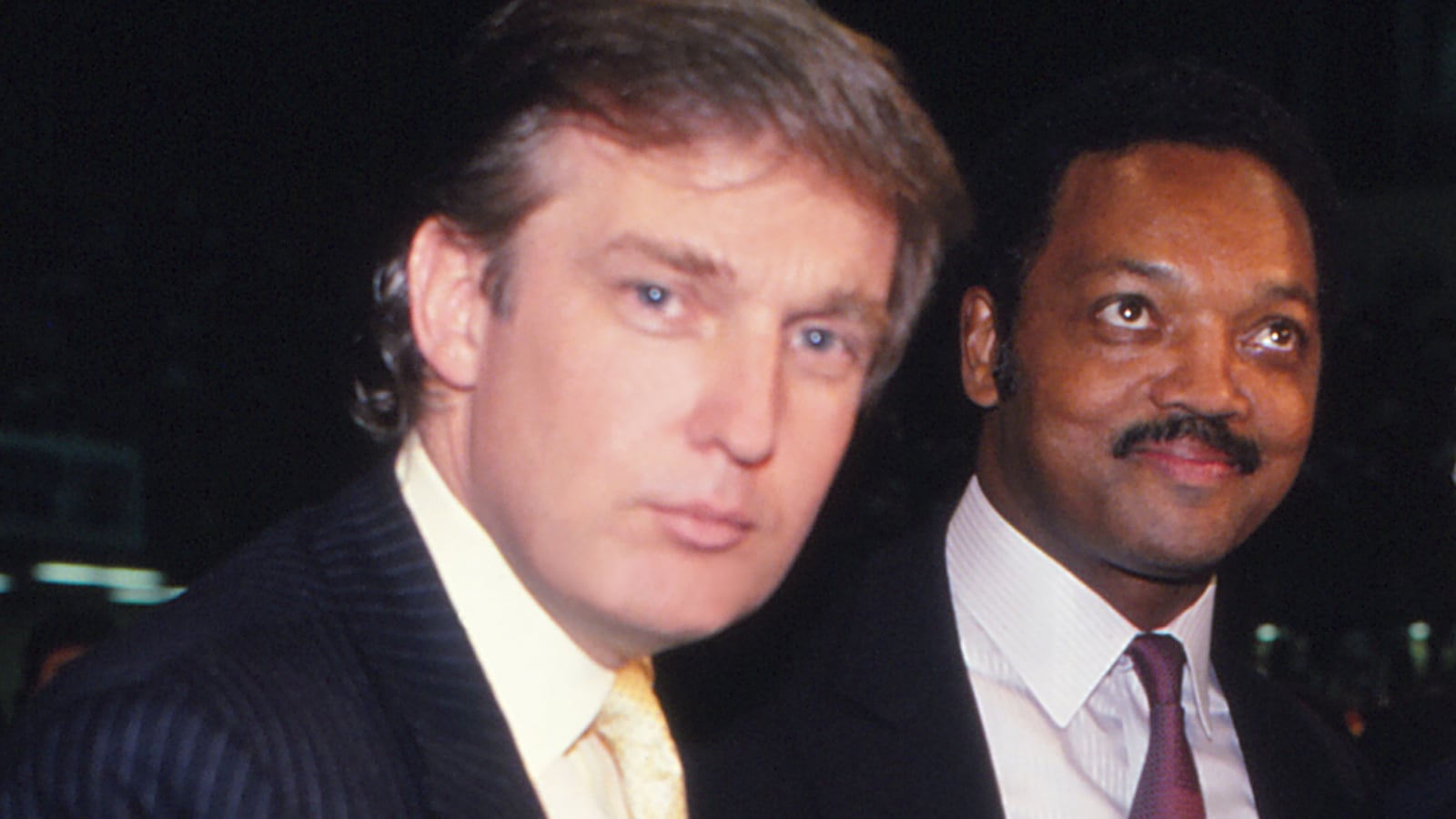Amid the flurry of criticism over President Donald Trump’s response to the violence at a white supremacist rally in Charlottesville, Virginia, one of his most vocal defenders offered a proposition in his defense.
How could Trump be a racist, Katrina Pierson wanted to know, if he supported the first mainstream black candidate’s campaigns for the White House? “A racist would not endorse Jesse Jackson’s presidential campaign in the ’80s twice,” she explained to The New York Times.
It was a valid rejoinder, for all reasons save one. Trump never endorsed Jackson, at least according to Jackson.
“There is no evidence at all,” the longtime civil rights activist told The Daily Beast. “I think he promised to endorse David Dinkins [for mayor in 1988] and did not. He never promised to endorse me.”
Jackson ran twice for president, first in 1984 and then in 1988. The first time he did it as a matter of political activism. Jackson felt that black Americans could further their policy objectives if they were viewed as viable presidential candidates. The second time, he won nearly 7 million votes and 11 states in the Democratic primary, and spooked the party establishment. Virtually no white Democratic official backed his campaigns outside a youngish ex-mayor of Burlington, Vermont, named Bernie Sanders.
Trump wasn’t opposed. As Pierson pointed out in an email to The Daily Beast, Jackson would go on to praise him a decade later for attending a campaign-related “business meeting” in New York at a time when “many others thought it was laughable or something to avoid.”
But the relationship between the two men was predominantly in the 1990s, according to Jackson. It was then that Trump rented Jackson office space as part of a project to get more minorities in Wall Street jobs, which he had undertaken with the help of President Clinton and business leaders.
“We would be at the boxing matches to see [Mike] Tyson or Sugar Ray Leonard,” Jackson said. “He would be there. That’s all I know about him, really.”
Trump, by the late ’90s, was actually quite well-regarded in the black community, owing largely to an outsize image and reputation. A Fortune article from 1999 cited an 800-person survey conducted by pollsters in Florida that had Trump with a 67 percent favorable rating among black voters. Culturally, he was ubiquitous, appearing in commercials, television sitcoms, and often referenced in rap songs.
“Go online today. And you have a program called Shark Tank. They aren’t talking about the aquatic life,” General Steele, one-half of the hip-hop duo Smif-N-Wessun, which recorded the song “Black Trump,” said in an interview last summer. “They are talking about money, how to be a shark, how to be a vicious individual who cares about money and nothing else. And in some places in the African-American diaspora, you mix your success story with being a shark. Trump was the ultimate shark in the ’80s.”
That good will built up even more during Trump’s Apprentice years. But as he continued to dabble into electoral politics, it dissipated. The birtherism, the nativism, and the not-so-subtle dog whistling added up and drew black voters away.
Though Jackson praised Trump in the late ’90s, he said he was wary of the man, owing to his demonization of the Central Park Five—the group of young black kids Trump wanted executed after they were wrongfully jailed for the near death of a Central Park jogger.
President Trump’s response to Charlottesville, Jackson added, was a feature, not a bug.
“It is disappointing and hurting the country in some sense,” Jackson said. “But it is inciting the review and unfinished business of the Civil War. Even Robert E Lee did not want his statue up.”






